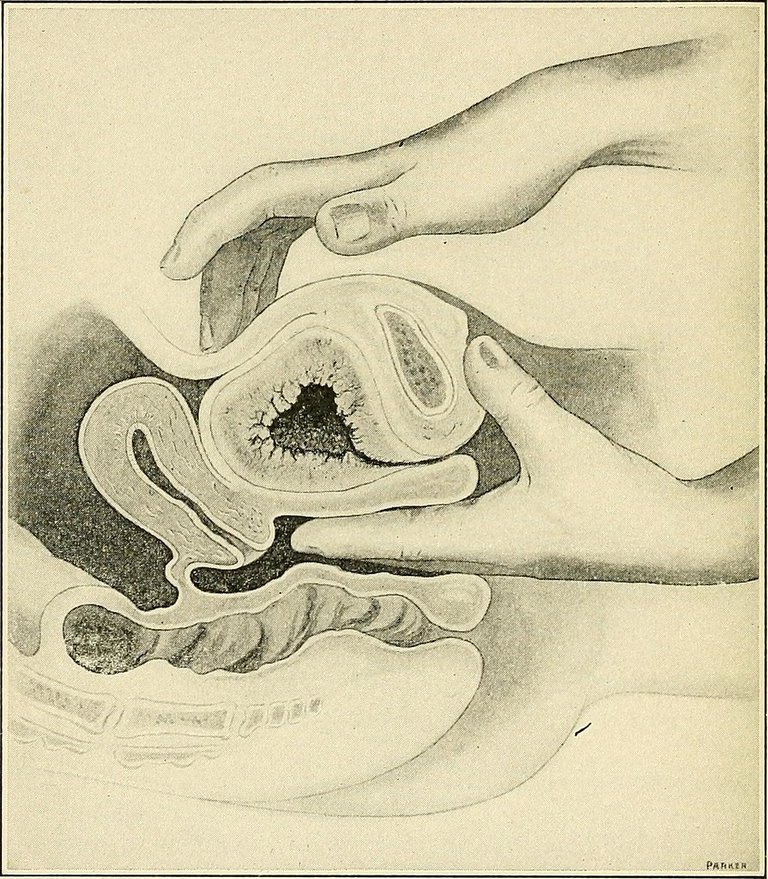As a woman, I certainly love to study women's health and know more about what could affect us as women, I will be writing on Interstitial cystitis as a topic today and I hope that you pick a lesson or two just as I will be doing as well.
Interstitial cystitis is a chronic condition that leads to situations of bladder pain, bladder pressure, and on some occasions pelvic pain, the pain felt ranges from a simple discomfort to serious pain. Although it is more common among women, it does not eliminate the fact that men can also get affected.

Image source
The bladder is a hollowed form, muscular organ that functions in the space of urine storage, the bladder continues to expand until it becomes full and then gives a signal to the brain indicating the time to urinate, having a form of communication through the pelvic nerves, for a lot of people, it is an indication of the urge to urinate.
The urinary system consists of the; kidneys, bladder, urethra, and ureters, when interstitial cystitis comes up, the bladder wall becomes inflamed and irritated. This creates an urge for frequent urination with a smaller volume deposited released in each case.
The symptoms and signs of interstitial cystitis are different among people, the possibility of it flaring up in response to triggers is also very possible from time to time. The flaring is usually in response to triggers like; stress, exercise, sitting for a long time, and sexual activities. Some of the accompanied symptoms and signs include;
- Chronic pelvic pain.
- A constant urge to urinate.
- Pain in the pelvis, or between the vagina and anus in women.
- Pain between the scrotum and anus in men.
- Discomfort or pain when the bladder is full and even while urinating.
,

Image source
Experts have not been able to state the exact cause of Interstitial cystitis, but there are risk factors involved that could trigger it;
- The presence of an item in the urine that damages the bladder.
- A bladder tissue defect that may allow substances in the urine to weaken the tissues or result in ulcers.
- Nerve changes where bladder sensation occurs, causing pain with events that are not naturally painful.
- The body's immune system attacks the bladder.
- Hereditary, infection, or an allergy.
The symptoms of Interstitial cystitis in men may be more associated with prostrate gland inflammation, with diagnosis common amongst people who are older than 30.
Some complications are also possible especially when the condition isn't handled on time, the bladder wall could become stiffened, making the bladder wall hold less urine. Personal relationships may also suffer due to frequent urination, and emotional stress that can result in depression.
There is no general treatment for everyone with the conditions, treatment is chosen individually based on the symptoms felt, the goal of the treatment is targeted at controlling your symptoms, and a combination of medical changes with lifestyle changes is utilized until relief is found.
Behavioral therapy known as lifestyle changes is first tried, an expert may need to work with you based on the things you consume daily, which means you may need to limit some form of drinks and food. Limiting stress and getting engaged in self-care, and physical therapy are also options used.
For Further Studies.
https://www.mayoclinic.org/diseases-conditions/interstitial-cystitis/symptoms-causes/syc-20354357
https://www.nhs.uk/conditions/interstitial-cystitis/
https://www.kidney.org/atoz/content/interstitial
https://www.urologyhealth.org/urology-a-z/i/interstitial-cystitis
https://www.webmd.com/urinary-incontinence-oab/interstitial-cystitis

Hi, I am Tobi a writer, speaker, relationship blogger, and lover of good music. I love making friends and learning from people. If you want to hear me speak on relationships and general life issues, you can find my YouTube channel where you can watch any episode for free, please do not forget to subscribe, friends. I sincerely appreciate every love I get from here, Kindly do well to keep them coming.

